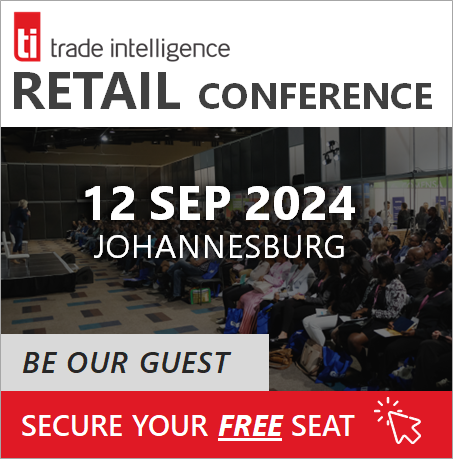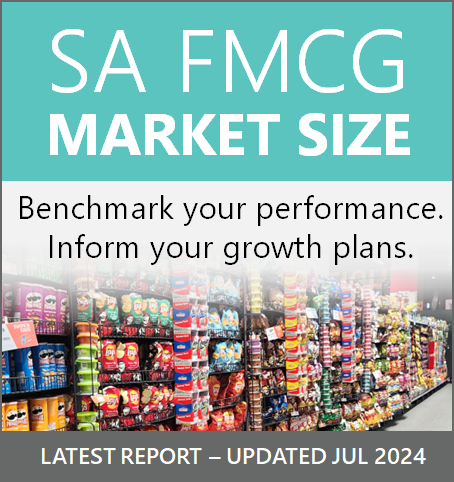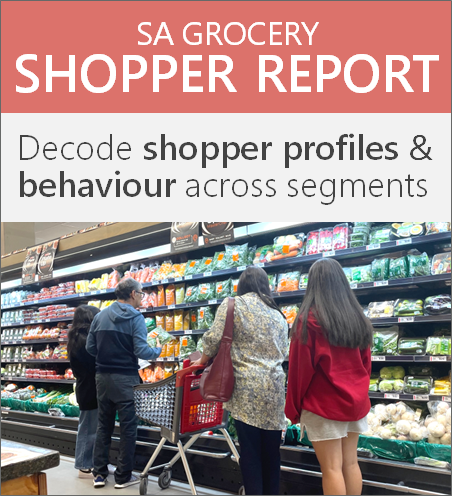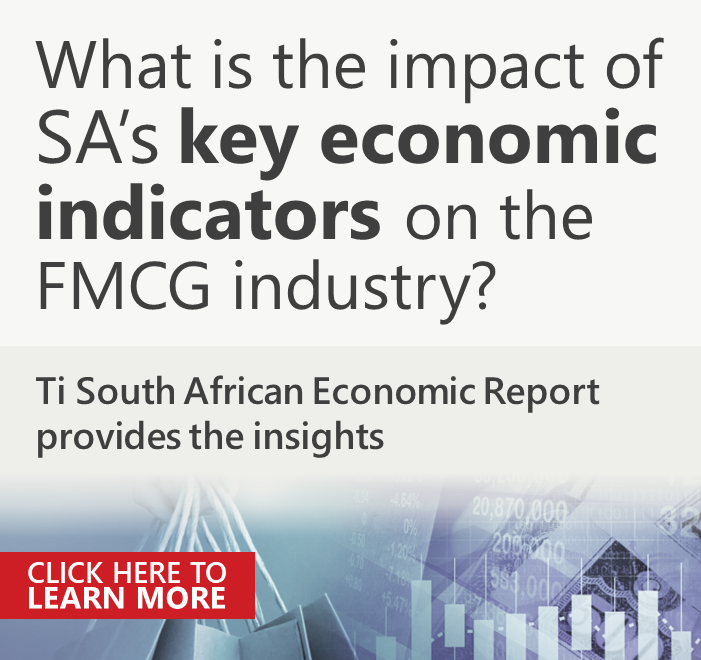
THIS ISSUE: 11 Feb - 17 Feb
A big box of Valentine’s choccies to Woolies, which has achieved 100% sustainability in its cacao supply chain. And to Clicks, which has profited off the pandemic while doing us all a solid, health wise. Not to Eskom, though, conclusively shown by Harvard researchers to be the drag on our economy we always thought it was. Still, on balance, the good news outweighs the bad. Enjoy the read.
YOUR NUMBERS THIS WEEK
RETAILERS AND WHOLESALERS
-
Clicks A shot in the arm
More on that trading update from Clicks for the 20 weeks through January 16, with sales for that oddly specific period +10.4% to R15.1bn. Of this, COVID vaccines accounted for R685m, raising retail sales by +6.9%. And this off a high base: last year’s second COVID wave saw higher sales of preventive healthcare products like supplements, immunity-building vitamins, masks and sanitisers, while for all the drama which attended its arrival, the milder Omicron variant wasn’t the same gift for retailers in this space. Speaking of which, both Clicks and Dis-Chem have grown same-store sales – by +11.1% in the case of the former – suggesting that they both continue to take market share from independent pharmacies and the smaller chains. But back to Clicks: its territorial ambitions remain unsatisfied, with an insatiable yearning to open as many as 30 stores a year, which should take it over the 800 mark in 2022. And as the chain grows, so too does its distribution arm: sales over at UPD were also up a pleasing +10.1%.
Comment: A great business, whose success may be attributed, inter alia, to a solid growth strategy and brilliant execution in store.
-
-
Woolworths Hearts of chocolate
Another milestone for Woolworths on its Good Business Journey: the Dapper One has achieved its not-inconsiderable ambition of sourcing 100% of the cacao used in its chocolate products sustainably. These products include the whole shooting party: branded chocolate, breakfast cereals, hot drinks, yoghurts and milkshakes, biscuits, cakes and desserts, the works. How did it do that? It wasn’t easy: starting 10 years ago, and working with the UTZ programme, the Rainforest Alliance, Cocoa Horizons, and Fairtrade, it has verified that all of its cacao now comes from suppliers who adhere to environmentally sustainable cocoa agriculture and fair labour laws. These organisations, says Latiefa Behardien, Head of Foods Technology, Safety and the Good Business Journey, “transparently report on progress and impact, so our customers know that when they choose a branded Woolworths chocolate product, they are part of the global solution.”
Comment: For some Woolies customers, this commitment is important. But probably not for most customers. This is a business that in this area has decided to do the right thing for its own sake.
-
-
In Brief Back in the Billionaire Boys Club
Big up this week to Checkers, whose Sixty60 platform has been voted the best online grocery store in both the annual Star Reader’s Choice Awards and the Pretoria News Reader’s Choice Awards. Sticking with the Big Red One, Oom Christo Wiese, you will be relieved to know, is once again a dollar billionaire, due in no small part to his 10.67% stake in Shoprite, itself worth a cool $910m, but which is driven over the threshold by shares owned by his other investment vehicles and family interests. Moving on, Food Lover’s Market has opened applications for the company’s second annual Seeds of Change Supplier Development Partnership, aimed at social enterprises that are a good fit for food and fresh produce retail, such as smallholder farmers, freight businesses, commercial services, produce and in-store departments such as bakeries, groceries and liquor. Over to Pick n Pay, which is getting deeper into financial services, and whose partner TymeBank is launching a credit card, which will also enable PnP’s Smart Shopper loyalty members to double their points per purchase. Finally, Dis-Chem has declared February as total female health month, offering several types of tests and screenings at its in-store clinics.
Comment: Public health is increasingly becoming the remit of the private sector, including our great retailers, notably Clicks and Dis-Chem.
-
-
International Retailers Warehouse party
Over in the People’s Republic of China, SPAR partner Jiajiayue has opened its first membership-based warehouse supermarket in Shandong. The SPAR Jiajiayue Member Store offers customers a 3,000-strong range of SKUs, plus free parking, customer loyalty activities, coupons, shopping rebates, and other value-added services. In the US, German discounter Aldi is set to open 150 new stores this year, making it the third-largest US grocery retailer by store count, behind Walmart and Kroger’s. In the UK, prices across a basket of 15 standard items have risen +8% in a year at Tesco, Asda, Morrison’s and Sainsbury’s, with Tesco warning that the worst of food inflation is yet to come. Also in the UK, Amazon has been officially classified as a grocery retailer, in keeping with Competition and Markets Authority rules that will now prevent it from exercising unfair business practices. And finally, retail tech outfit Ocado has achieved a surprisingly modest +7.2% increase in group revenue to £2.5bn for the year through November.
Comment: What’s with the SPAR warehouse member model? Do those things still have legs?
MANUFACTURERS AND SERVICE PROVIDERS
-
RCL FOODS A plucky crew
In a trading update, RCL FOODS has announced that it expects its headline earnings per share (HEPS), an accurate measure of profitability, to increase between +15% and +27% for the half year through December 2021, on the back of solid performances from all divisions. RCL had a busy 2021, resolving to bulk up its FMCG business through acquisitions while separating its chicken and sugar units and Vector Logistics into separate legal entities. The chicken business, with a new management team, is expecting to be a standalone unit by the end of the first half of the 2022 FY and remains SA’s biggest poultry producer. This notwithstanding, in 2020 it hedged its historic reliance on everyone’s favourite white meat in a JV with up-and-coming US-based vegetarian foods supplier, Livekindly Collective.
Comment: The struggles of RCL have made for one of the most frustrating stories of the last few years. Their resurgence may prove to be one of the more compelling yarns of the next few.
-
-
In Brief Many rivers to cross
In KZN, leading edible oil producer Willowton has committed its resources to a monthly clean-up of one of South Africa’s most polluted rivers, the Baynespruit, which winds its way for 9 kilometres through the Willowton Industrial Area before finding its way into the great Msunduzi River, and has challenged its business neighbours to do the same. Over the holiday period, many beaches in the Durban area were closed as a result of human waste and other pollutants that had found their way into the Indian Ocean through similar catchments. And speaking of commitments, Coca-Cola Beverages Africa (CCBA) has undertaken to play its part in promoting the advancement of women in the sciences on this great continent of ours. Here in the Beloved Country, CCBA has established a bursary fund at the University of Pretoria to support female students from previously disadvantaged backgrounds in their final year of engineering studies. Finally, further afield, Unilever has announced that it has just achieved its fastest underlying sales growth in nine years, at +4.5%, with turnover up +3.4% and China and India growing +14.3% and +13.4% respectively.
Comment: The growing commitment of businesses in taking responsibility for the environmental impacts of their operations is heartening.
TRADE ENVIRONMENT
-
The Economy Negatively charged
Ancient history, but still for our country growing forward, it is a big question we must grapple with: Why, in the midst of an emerging-markets tsunami and a commodities boom, did our economy (which ticks both boxes) not shoot the lights out in the recovery from the global recession in 2008? Here to help is the Harvard Growth Lab, which published a report on the conundrum last week. Short answer: our underperformance in commodities was not a significant factor, as they were already underperforming before the crash, and neither were macroeconomic factors. This leaves the examination of productivity decline in network industries to which the biggest contributor was the utilities, particularly Eskom. The study finds that had our utilities sector performed as it historically had, the value added to the economy by non-utilities would have been +8.5% higher.
Comment: Deeply, deeply frustrating. But at least this illuminates (No. Ed) a path forward – provided Eskom can either be fixed or side-lined by more efficient providers.
Sign up to receive the latest SA and international FMCG news weekly.
Tatler Archive
“Forget love – I’d rather fall in chocolate.”







1.png)
